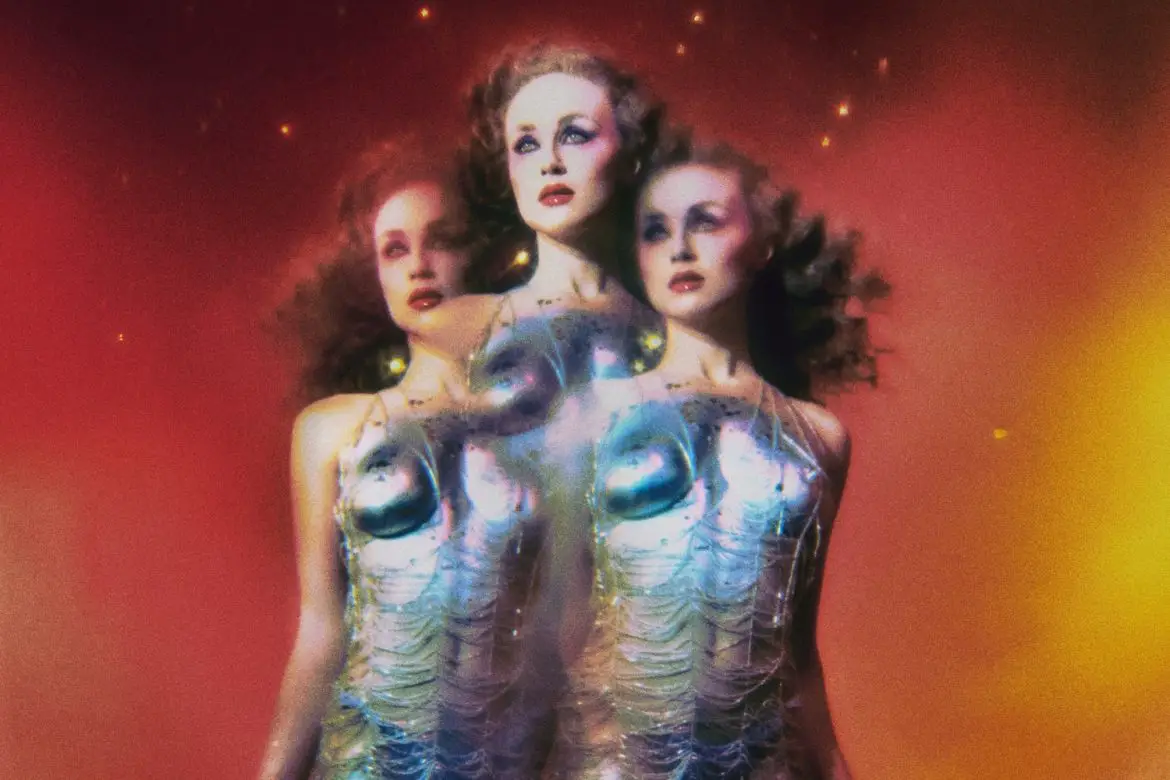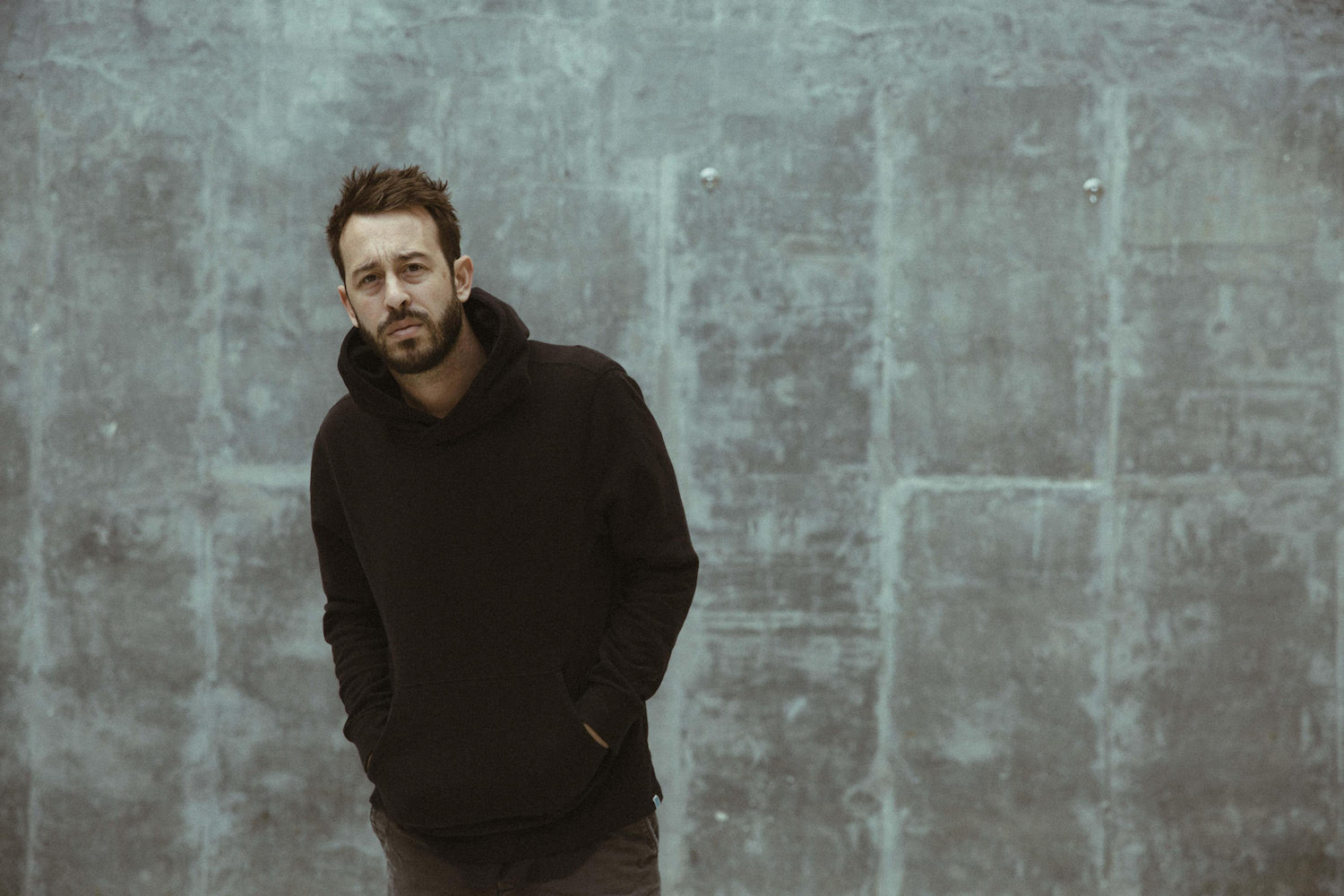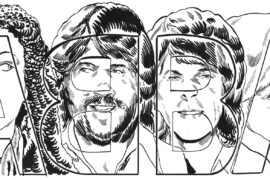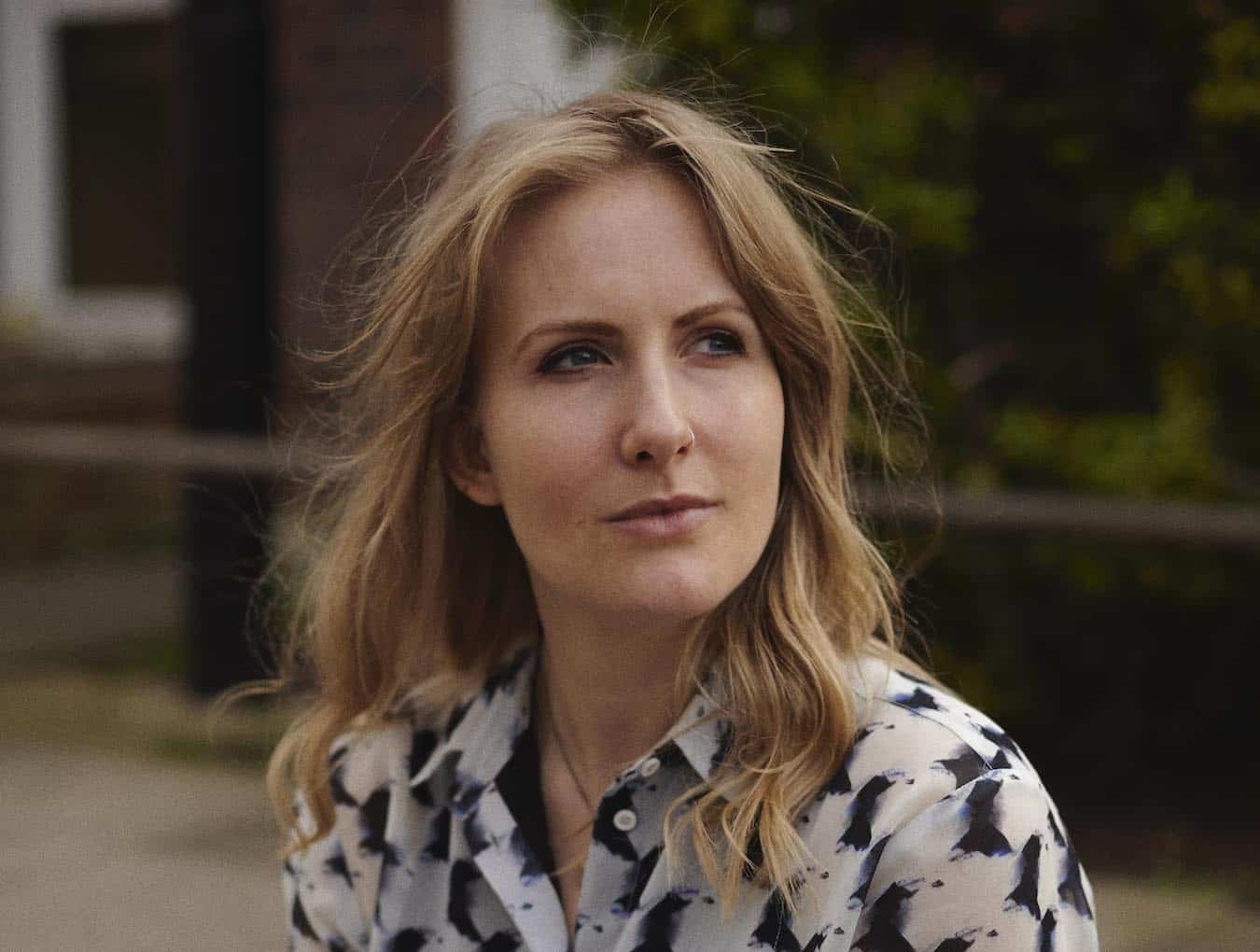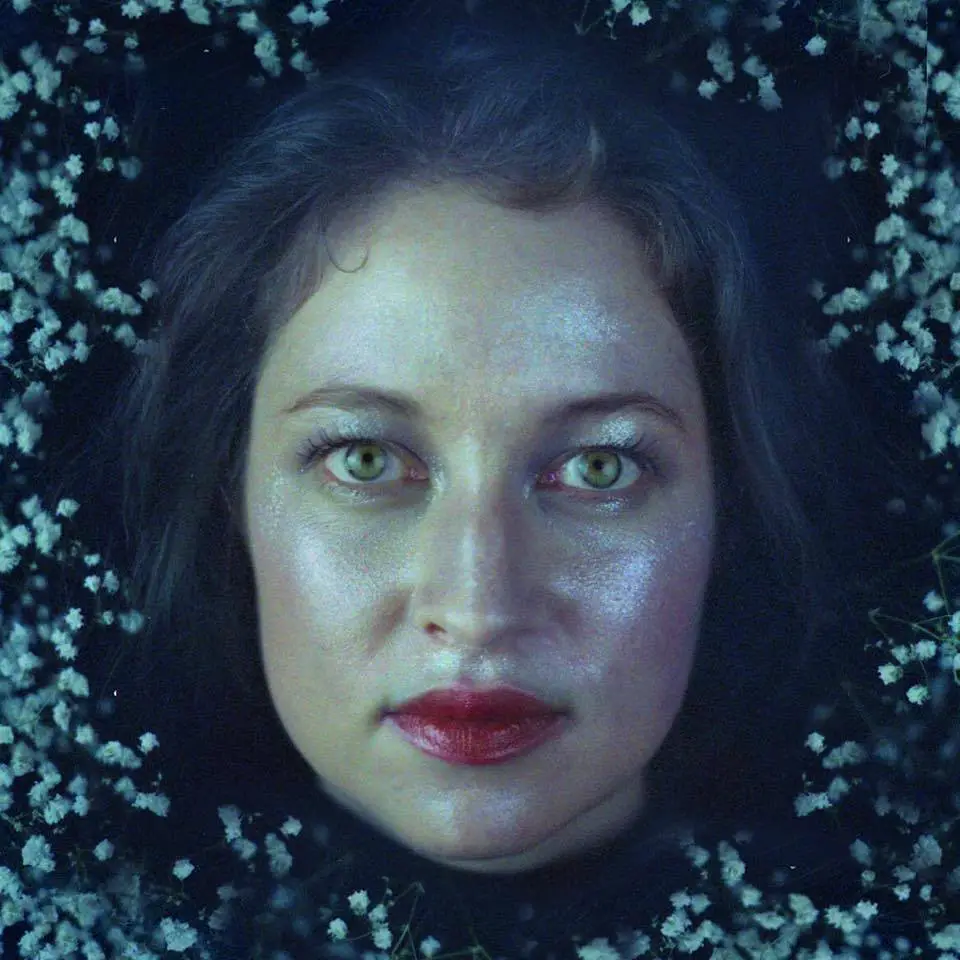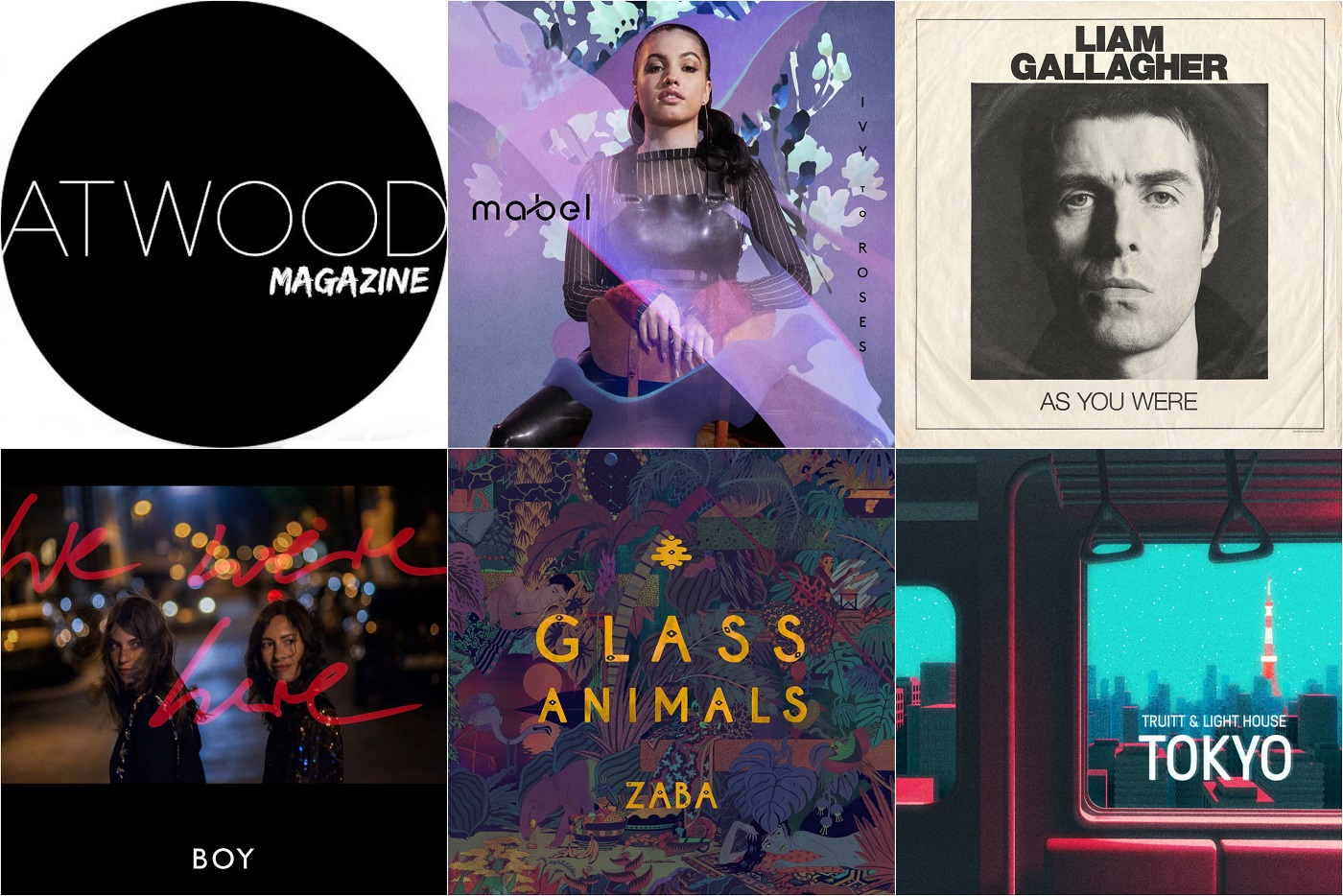Zella Day dances her way back onto the scene with her feverish and sonically bombastic new record, ‘Sunday in Heaven’, an album rife with clever cross-genre-amalgamations and the musician’s classic dynamism.
Stream: ‘Sunday in Heaven’ – Zella Day
To write songs and engage with music, it really is this mystical magical force that has transformed my life over and over and over again.
For some, Sunday is a day of rest; but for one Zella Day, Sunday is a day of dancing.
Though, on one frigid day in October, Day was only sitting across from me — her image projected onto the screen of my tinny laptop, clad in an orange shirt that was almost as vibrant as her discography. Her warm Texas home seemed worlds away from my blustery Boston dorm room, but we were intrinsically connected by one thing: her newest record, Sunday In Heaven, released Oct. 14, 2022, via Concord Records.

Zella Day has been lauded by critics for her striking use of genre-bending musicality within her discography. Her debut record, Kicker, in 2015 was a smashing success, launching the musician into a frenzy of international recognition. After said release, she embarked on various tours all over the world, headlined American music festivals; all the while delighting listeners and audiences alike with her bold soundscape and spritely charisma.
In the midst of all of this excitement, Day had come to a decision about her art: “I had a different idea of where my style and musical journey was going to take me,” she confides. “I felt that I wasn’t situated to actually accomplish what I wanted to accomplish creatively.” Since she no longer felt creatively supported by her label, she initiated a transition to be signed under a new one.
While finding a new label was certainly not an easy process, Day asserts: “It really is about stepping back, asking yourself what you need right now, listening, and not being afraid to say no.” Unabashedly taking her life by its reins, she threw herself headfirst into uncertainty, willing to be lost for a bit if it ultimately meant that she would emerge on the other side with a more concrete foundation to lay her artistry upon.
And though Day did indeed summon the courage to put her foot down on behalf of her art, the transition took much more time to occur than she had accounted for. “When you take a break and then you’re ready to get back in the game and don’t know exactly what that’s gonna look like, it can be really revealing and uncomfortable to have to accept that things change,” she confides. “You have to change with [those changes, and know], that where you once were isn’t the same anymore, and be okay with that.”’

Some seven-odd years have passed since the release of Kicker, and Day has, naturally, grown up.
While some question the musician for taking an extended break in an industry that practically demands the constant output of content, she has remained confident in her decision to do things in accordance with her own timeline. “There’s a long way, and then there’s a shortcut, I’ve chosen to take the long way,” she affirms. “Sometimes it gets really lonely out there, and I’m like: ‘Where the fuck am I? What am I doing?’ But when you’re really consistent with any kind of medium, eventually that catches up to you and becomes your security.”
Music has steadfastly remained by Day’s side, even with all of the pressures of the world bearing down upon her. She exclaims: “When you’ve done it for so long, and it becomes part of who you are, It’s an appendage. Music is something that exists inside of my body and outside of my body and in my life. It has been proven to create the most peace within myself and in my relationship with myself to try and understand everything as it happens.”
Music is something that exists inside of my body and outside of my body and in my life. It has been proven to create the most peace within myself and in my relationship with myself to try and understand everything as it happens.
Sunday In Heaven poignantly captures Day’s battle with her inner world and the chaos of the outer world surrounding her.
She shares: “At the time that I was writing a lot of these songs, I was not out of my record deal. I was living and writing these songs in the corner of my very small apartment, and seeing things far beyond my physical reality. The songs were a manifestation of my idea of expansiveness.” Day would infuse these high-energy tracks with all of her dreams for the future, hoping that one day these wishes would become her reality.
“Sunday In Heaven does feel like this really beautiful parting gift from the time of my life that I’m no longer in […],” she says. “Everything that I went through to get to the point where I was even able to write about all of that pain and all of that tragedy and all of that loss and gain feels like a gain now that the record is out. I feel like I’ve gained a lot, instead of feeling lost in this liminal space.”
Perhaps Day’s musical manifestations did indeed work — within the same week of Sunday In Heaven’s release, Day packed up her things and moved straight to Texas from LA.
“I need to recharge and reset — I know that. I’ve known that since last year when the record was finished. I gave so much to it, and was starting to get in this unhealthy cyclical way of thinking of its success and being tormented by the fear of it being unsuccessful,” she asserts, “I knew that I needed to have a change of pace and a change of scenery. The same people, the same perspectives, and sights, and even the same freeways I was driving felt like Groundhog Day.”
And thus, Day happily reflects: “When I listen to the songs now, I think it worked. I really did move from one space into another. To write songs and engage with music, it really is this mystical magical force that has transformed my life over and over and over again. This record is no exception.”
But even if Day has partially ‘escaped,’ from the incessant craziness of LA, she notes: “It’s […] very naive to think that you don’t have to be involved in this circus that is on a big world tour.” The industry is unforgiving and takes and takes until it strips one of their sense of self — turning them into a piece of commerce, a commodity of sorts — unless some boundaries are set.
“I’ve never really understood when people talk about creating a character and having a facade,” Day notes. “Not that I feel that I’m a facade, or my artistry or who I am is being projected out into the world is a facade — but to be talking about it when I engage in conversation about my project, I talk about it as the Zella Day ‘project.’ It helps keep things feeling a lot less personal, especially for me as a person, reserving a space for myself to also be nurturing other aspects of my life.”

For Zella Day, the time between now and her next release will be full of rest and relaxation.
She will be carving out space to savor the present moment, entering a highly sensitive space, becoming more attuned than ever with all of her surroundings. You’ll likely find her learning how to bake loaves of bread, attending two-step dance classes, and spending some quality time with family.
While different artists have vastly contrasting ideas of what defines success in this industry, Day has become confident in her own definition of the concept that she has been developing over the years. “For me, success is being able to see the growth between music that I was writing, and the music that I’m writing now,” she describes, before continuing on to note that: “having real goals of creative pursuit musically of where I am, and where I feel that I can be or should be, and achieving those things” are all different components of what makes the Zella Day project continuously gratifying.
“I am so grateful that music is what consumes my life,” Day expresses with a soft smile crossing her face. “I feel so honored in this lifetime to be able to do that, and to say that.”
We, too, as listeners should feel honored that our lifetimes have crossed paths with the artistry of Zella Day. So, if you ever find yourself stuck in a transitory phase and are not sure what to do next, don’t be afraid to turn to Zella Day’s Sunday In Heaven for the answers.
Continue reading below to learn the full expanse of Zella Day’s wisdom, and the various mindsets that informed the creation of Sunday In Heaven.
— —
:: stream/purchase Sunday In Heaven here ::
A CONVERSATION WITH ZELLA DAY

Atwood Magazine: Before we fully delve into the record, I want to start out by asking you about your time as a musician. You've been playing and creating music for a good chunk of your life; but besides it being your full time job, why does making music continue to be a creative outlet for you?
Zella Day: I don’t know if it’s much of a choice. When you’ve done it for so long, and it becomes part of who you are, it’s an appendage. Music is something that exists inside of my body, outside of my body, and in my life. It has been proven to create the most peace within myself and in my relationship with myself to try and understand everything as it happens. I wouldn’t even say everything — that’s silly and sounds too much like a generalization — but music is the way that I navigate.
And speaking of navigating life in the industry today: there's a lot of pressure around having a plan, or a timeline, that will really outline your entire career trajectory. How do you deal with that pressure to have a concrete timeline of what you have to do to be a successful musician? Do you believe in timelines?
Zella Day: Whether or not you believe in a timeline, you have to have one in order to make sense of what you’re doing, and for people to make sense of you and what music you’re working on, when and where, and what people can expect — there’s so much going on. The truth is that there are more artists in the industry today than there ever have been, because of the accessibility to be able to create and to produce.
I don’t know if I deal with the pressure well; I take each step as it comes, and each record cycle is different. Everything is changing so quickly, and at a rapid pace, to where the way that my record cycle has gone this year, will look very different in a few years. The requirements really are customizable, which doesn’t make it easy to track. I try to keep things simple and focus on the songs. Right now, after the release of Sunday in Heaven, I’m looking out for new inspiration in my daily life, and not thinking about the reception of the music as much as I’m thinking about where I’m going to go next. I’m trying to be really sensitive. If anything, during a timeline and the release timeline, I feel more callous. It’s like when you have to strap up your boots and be like: “I don’t give a fuck what people think.” During this time right now, when I’ve now released music and I’m open to the next phase, I’m going to be entering a highly sensitive space.

I really liked what you said about the industry not being like it was so many years ago — it's rapidly changing now, and an added factor of that is social media and how artists have to be like influencers as well to promote their music. That makes art a lot more accessible, but it is an added pressure to be on the internet and share your life. What are your thoughts on social media and navigating through having a presence online?
Zella Day: I know what other people’s thoughts on my team are about me having a social media presence, and what I consider to be exposed. I’ve been very present on social media over the past year but you could always do more; be more personable and accessible. It’s not in my personality to exist on the internet comfortably, with ease, without thinking before I post. People that are really good at social media somehow manage to incorporate it into their daily lives without it being a distraction. I find it to be very distracting. I don’t know how long we have had Instagram now — for like eight, nine years — I tremble to think about the addiction that I have developed in looking at my social media as a reflection of the way my music is performing. That’s probably my least favorite part: The way that I can see the fluctuation of energy [through numbers], but that’s not true.
[Numbers and likes] aren’t a true indicator of the way the music itself is making it out into the world. It’s through making playlists on Spotify, Apple, Pandora, and even YouTube. All have a big presence and hand in the way that the music is being distributed. Social media is really deceptive in that you’re looking at how many followers someone has, or how many likes their posts are getting, and you equate that to how successful their music is. I’m guilty of that as well.
I have to remind myself that in posting about Sunday In Heaven, even though some of the interactions feel nominal, there’s still other things happening with the music — and thank God! There’s part of me that feels like I don’t know if that’s even going to last that long. Everything eventually is going to merge into one force that is a caricature of itself. I’m a little bit afraid of artificial intelligence when it comes to music, because what I do in my relationship with music is so raw. The synthesis of all of it feels really scary sometimes. I don’t know what the healthy relationship in giving too much, or too little is, because it’s also very naive to think that you don’t have to be involved in this circus that is on a big world tour — what are you gonna do?
I love what you said about having those tangible numbers, crunching those, and being discouraged by likes and things like that when social media won't tell you the actual impact someone is getting from your song. It won't tell them that it saved them from a hard event in their life, that part of music's ability is so beautiful. Social media is so great in so many ways, but like you said, it can be so discouraging; especially for artists to have those fluctuations in numbers that indicate how well they're doing career-wise.
Zella Day: I get asked all the time by my label if I want to look at my social media analytics, and I’m like: “No, thank you!”
That can be so tough. A lot of the themes present within your discography are about chipping away at this artificial image that we project for the rest of the world. How do you care for your most authentic self when working in an industry — like we were talking about — that emphasizes the importance of numbers, images, and upholding a brand?
Zella Day: Family. I lived with my sister in Hollywood, and my mom was in Long Beach. I spend a lot of time with my family to stay grounded. They are a constant reminder of who I am, and where I come from. I’ve been playing music since I was a child, and it gets really unnerving sometimes. Maybe it was the pandemic, or my long hiatus from the music industry during the time I was transitioning from one label to the next and wasn’t really able to be active in playing shows and connecting with my audience that created this deep seated insecurity for releasing this record. It was a scary, very unpredictable time. Kicker — my first record released seven years ago — had a very beautiful life and had success. I was touring internationally and playing the biggest festivals in America. I had some real momentum.
Then I pulled the plug on all of that, because I had a different idea of where my style and musical journey was going to take me. I felt that I wasn’t situated to actually accomplish what I wanted to accomplish creatively. It set me back a few years, and then when I was ready to release music again, we went through a pandemic. So, for me to be around the family, and my life and my world that I’ve created that’s actually very quiet and consists of people that I know trust and love me during my creative process, it was always a conversation of what I’m writing and being able be in the safe protected shell that I really needed.
I wasn’t really feeling much security from the outer world, the industry, or just the world in general. When you take a break and then you’re ready to get back in the game and don’t know exactly what that’s gonna look like, it can be really revealing and uncomfortable to have to accept that things change, and that you have to change with them, and that where you once were isn’t the same anymore and being okay with that.

Definitely. Having family to turn back to is such a gift, because they'll be there for you almost unconditionally when the world isn't.
Zella Day: I’ve got some very strong maternal energy in my life — really strong feminine figures, and a lot of strong feminine energy surrounding me, which made it a more joyous experience during this really major transition. I’m also nearing the end of my 20s, so this record is coming at a time where the little kid in me is still there, but I’ve grown up and I’m holding this badge of what I’m making as an adult now. I’m deciding, and trying to look forward into the future of planning as much as I can. It’s really hard to plan in this industry, but admitting that, and also being competent enough to claim what I’ve made and that I do have a platform that has been created over time through all the music that I’ve written, and all of my output really is kind of that ‘brick by brick’ philosophy. There’s a long way, and then there’s a shortcut, I’ve chosen to take the long way. Sometimes it gets really lonely out there, and I’m like: “Where the fuck am I? What am I doing?” But when you’re really consistent with any kind of medium, eventually that catches up to you and becomes your security.
That's beautiful. That leads right into my questions about the album. You talked about a “brick by brick” climb up to where you are now. You penned around 70 songs for this record and ended up with the 10 that are in it now. How did you decide which songs belonged in it? Is it the sounds, the emotional themes, or something else entirely?
Zella Day: The sounds, and what felt most cohesive. My references and inspirations at the time melodically were very specific. I listened to a lot of Roy Orbison, Minnie Riperton, Cat Power, and Alanis Morissette. Those are all very different, and very juxtaposed, but I as a singer have a big range, so figuring out where in my range I wanted to land for this more theatrical delivery of what I do — that being the more Roy Orbison and Minnie Riperton sort of themes — and then you have the 90s Cat Power, Alanis Morissette with their very journalistic, sensitive, and vulnerable approach to songwriting that is less theatrical and more intimate. I was trying to combine these elements to create a record that sounded like me at the time, and also what was going to be the most fun to perform live, and what was going to have the most consistently exciting performance.
It's such a dynamic album; I remember hearing the advance, and I was hit by how powerful the production intermingled with the brightness of your vocals. It's such a good record, so congratulations on that! You've stated in a couple of past interviews that the best version of yourself is in a lot of your songs. What does the best version of Zella Day entail; what are the habits and strategies that you do to manifest this best version of yourself?
Zella Day: I’ve been starting to develop a habit that feels very healthy and helpful in my relationship to what Zella Day is, and that’s to be talking about Zella Day as a person outside of myself. I’ve never really understood when people talk about creating a character and having a facade. Not that I feel that I’m a facade or my artistry or who I am is being projected out into the world is a facade, but to be talking about it when I engage in conversation about my project, I talk about it as the Zella Day project. It helps keep things feeling a lot less personal, especially for me as a person, reserving a space for myself to also be nurturing other aspects of my life. I want to maintain a balance so that I’m able to perform and make art at whatever level I can. Also thinking about it that way, too; I’ve definitely, in moments, put all of my eggs in one basket at one time. That has been really painful; not that I’m not totally committed to my music and what Zella Day is, but the habit of having and making space is really good. In order to do that, it’s simple, basic shit: like making sure that you are learning how to bake a loaf of bread. Okay, you want to own a house? What does that really look like? You’re a struggling artist, but you would really like to have a family someday — and that’s okay, and actually outside of the norm of what this industry breeds.
I’m very traditional, in a sense. I would love to have a family someday. I’ve moved outside of LA, and am living in Texas now, which has felt like a really healthy move for me. I don’t know if I would call it the ‘daily habits of Zella Day,’ but more of these broad strokes of life decisions — how I’m setting myself up for happiness in more than just one area. Living in LA for so long, I’ve been so inundated with the industry, which has been very good at this time in my life where I’ve been in the building and rebuilding phase — I still am — but it felt really nice to unplug. It really is about stepping back, asking yourself what you need right now, listening, and not being afraid to say no. That’s like another part of this fast paced industry that we were talking about in the beginning of this conversation, where it never stops asking.
For me, I need to recharge and reset — I know that. I’ve known that since last year when the record was finished. I gave so much to it, and was starting to get in this unhealthy cyclical way of thinking of its success and being tormented by the fear of it being unsuccessful. I knew that I needed to have a change of pace and a change of scenery. The same people, the same perspectives, and sights, and even the same freeways I was driving felt like Groundhog Day.
I’m really interested in expanding, and giving myself to new environments that are really going to expose me to new information outside of what I’ve been receiving for the past 10 years. Sunday In Heaven does feel like this really beautiful parting gift from the time of my life that I’m no longer in. Now I get to be open to what’s next. Sunday In Heaven has been this sort of ‘percolation’ time of around six years. I wasn’t writing it for six years, but everything that I went through to get to the point where I was even able to write about all of that pain and all of that tragedy and all of that loss and gain feels like a gain now that the record is out. I feel like I’ve gained a lot, instead of feeling lost in this liminal space. Long story short, what I need right now is moving — and I’ve done it. Within the same week, I dropped my record and moved to Texas in a van.

It felt really nice to unplug. It really is about stepping back and asking yourself what you need right now, and listening, and not being afraid to say no.
That's awesome. I hope that the move was smooth.
Zella Day: It wasn’t, but these things never are. I’ve been in search for a musical community; there’s a lot of that here. I had a community in LA, but it’s very different here. It’s much more social, music is a social hour here. When in LA, it’s more industry driven, which makes a lot of sense. It’s really hard to live there; people are going there to make it. Here, people engage in music because it’s something that they just do on their off time. It’s way less competitive, way more quiet. All of these things are going to be reflected in the next record, and also in the reflections of Zella Day, and hopefully I’ll be able to form some new habits out here that are less shitty and more easy.
I like what you said about careers being oriented toward only doing artistry, and having to sacrifice your other goals and put those on the back-burner. You can want a family, and you can be an artist — they're not mutually exclusive, which is what LA sometimes emphasizes. You have to work, work, work, work to be this artist, and then a lot of your other wants get pushed to the side. I'm really happy that you've been able to move, that's really wonderful.
Zella Day: I still have family that lives in Long Beach, so I’ll be going back and forth. I was raised in northern Arizona, and the town that I’m in now is very similar to where I grew up. I want to learn piano. I didn’t have room in my apartment for a piano, but now I do. And now I have a backyard. It’s really exciting!
On Instagram about the album, you say: “Heaven as a concept is applied to this body of work,” and you talk about how music can take you beyond the limitations of the physical world. What does this feel like when you're performing these songs or even listening to these songs? What does being taken beyond the physical world feel like for you?
Zella Day: At the time that I was writing a lot of these songs, I was not out of my record deal. I was living and writing these songs in the corner of my very small apartment, and seeing things far beyond my physical reality. The songs were a manifestation of my idea of expansiveness. Every song that was written was creating what my vision and my future prophecy of freedom looked like past these barriers that I was up against. When I listen to the songs now, I think it worked. I really did move from one space into another. To write songs and engage with music, it really is this mystical magical force that has transformed my life over and over and over again. This record is no exception.
I love that you can look back on these songs and see that your life is where you kind of want it to be, or you're at least on the way to being where you want it to be.
Zella Day: Yes! My life looks a lot different than what I could have imagined. I wanted to be on tour last year. Talking about timeline — going back to your first question, of not being able to have much power over that being in the industry, and working with, the powers that be to release this music. It’s a commodity, a commerce — whatever, we’re in a business — but it does look a lot different than I thought it was going to, but at the same time, I have achieved the feeling of relief.
Let’s go back to where we started in this conversation. Various musicians define success in very different ways — some base it off of streams and numbers, and some off of the community that they create, and the impact that their music has on someone’s life — I wanted to ask you: what defines your success as a musician?
Zella Day: I see it as two sides: monetary success is a reality of what we do, and hopefully you can be paying your bills by making music. That, in its simplest form, is my idea of success: being able to not have a job outside of my job as a writer and as a performer that is very successful in a very competitive world. Anybody that can do that, I applaud you, because that shit is hard. A lot of the time, you’re having to spend your own money to do so, but If you’re able to break even and live a healthy life where you can go out and treat yourself to meals because you had a big cut, then fucking congratulations, that is major success. For me, on a more spiritual and creative level; for me, success is being able to see the growth between music that I was writing, and the music that I’m writing now; having real goals of creative pursuit musically of where I am, and where I feel that I can be or should be, and achieving those things. Also, keeping them manageable. “Policy,” for example, was a song for me that was really hard to write and hard to perform. I practice a lot of restraint in the song, while listening to Sunday In Heaven, I don’t practice that a lot. There’s a lot of projection of self lyrically, and my voice — I really use my voice in Sunday In Heaven. “Holocene” was a double vocal; it stayed as a whisper and is very lyrical, heavy and intricate. It’s a different shade of blue than the blue I usually paint with. Something like that being in my self identified sense of accomplishment or idea of success would be having creative and stylistic strides, making stylistic strides as a writer.

Both sides of the coin are very important — having that stability monetarily wise, and then having creativity. Being creative rests on having that financial stability. So, both are very important.
Zella Day: It’s really hard to write, or just make anything if you’re in a state of panic, stress, depression, or you can’t pay your bills. I am so grateful that music is what consumes my life. I feel so honored in this lifetime to be able to do that, and to say that. I hope it remains that way.
I always like to end my interviews on a happy note, so: what has been giving you joy lately? It can be anything.
Zella Day: Two stepping. I’ve been two stepping lately with my boyfriend. We’ve been going to the dance halls around the hill country and two stepping. That has been so fun and so awesome. Very wholesome content out here in Texas. To stepping; it has been very sweet.
— —
:: stream/purchase Sunday In Heaven here ::
Stream: ‘Sunday in Heaven’ – Zella Day
— — — —

Connect to Zella Day on
TikTok, Facebook, Twitter, Instagram
Discover new music on Atwood Magazine
? © Elizaveta Porodina
:: Stream Zella Day ::

